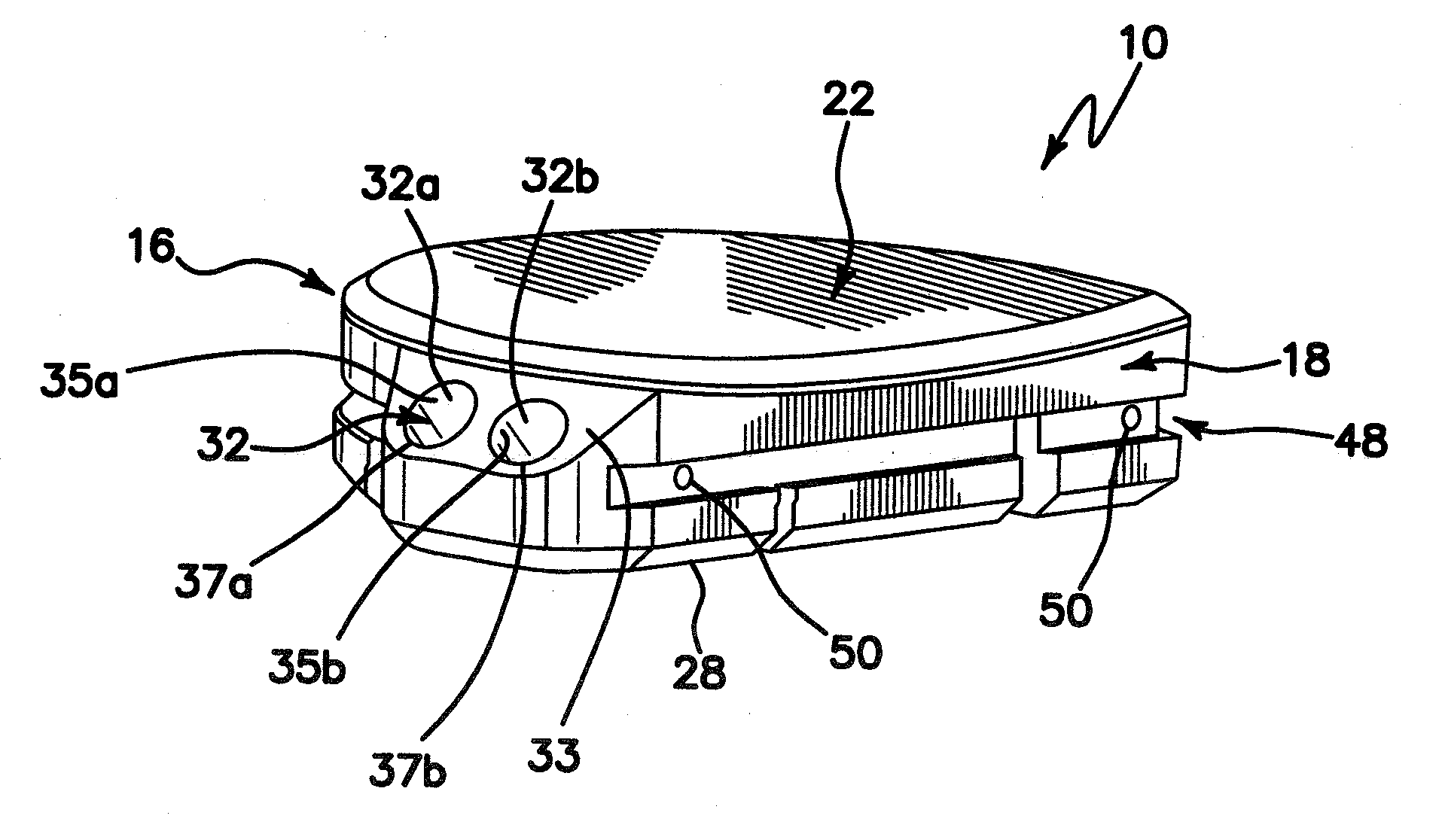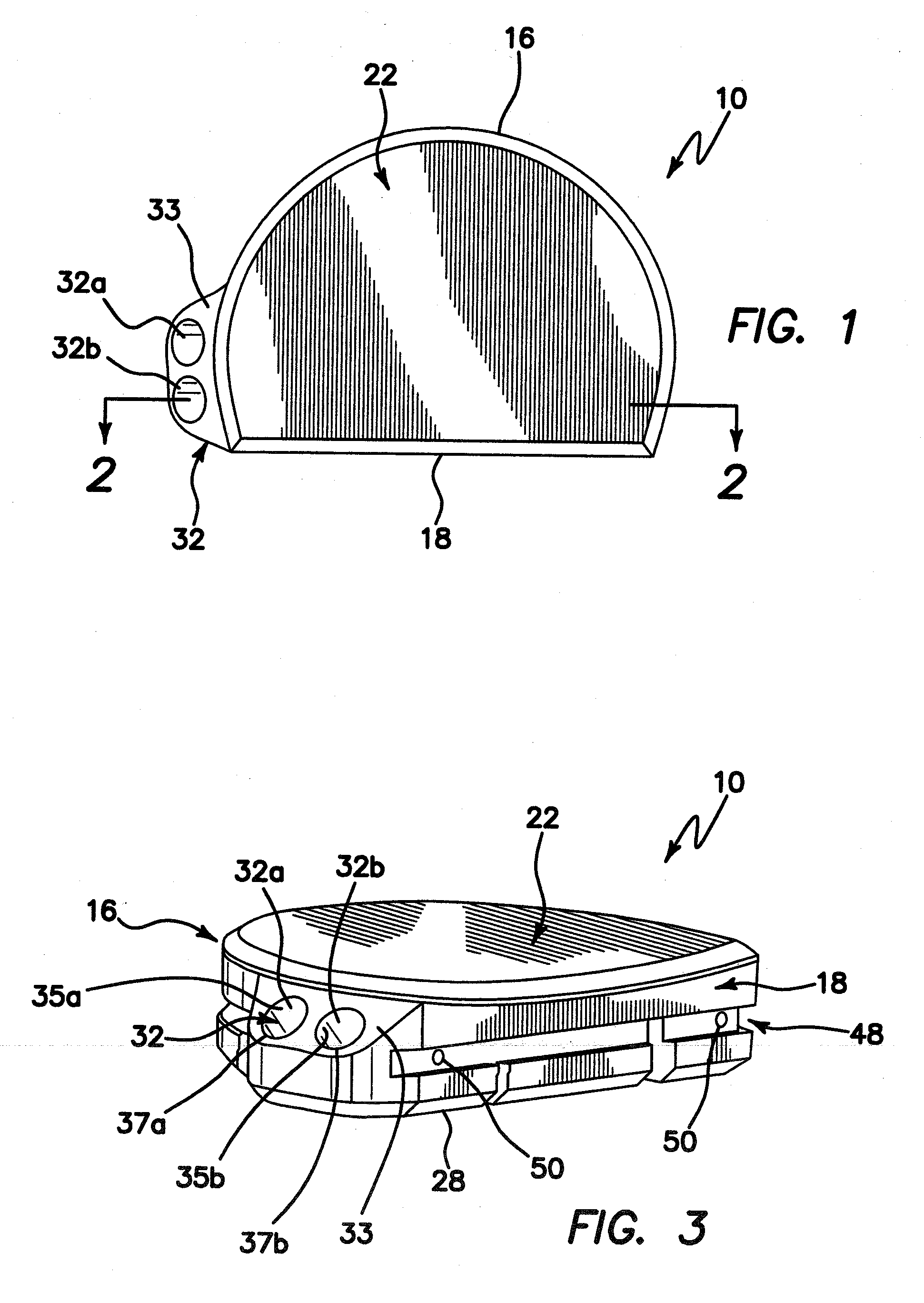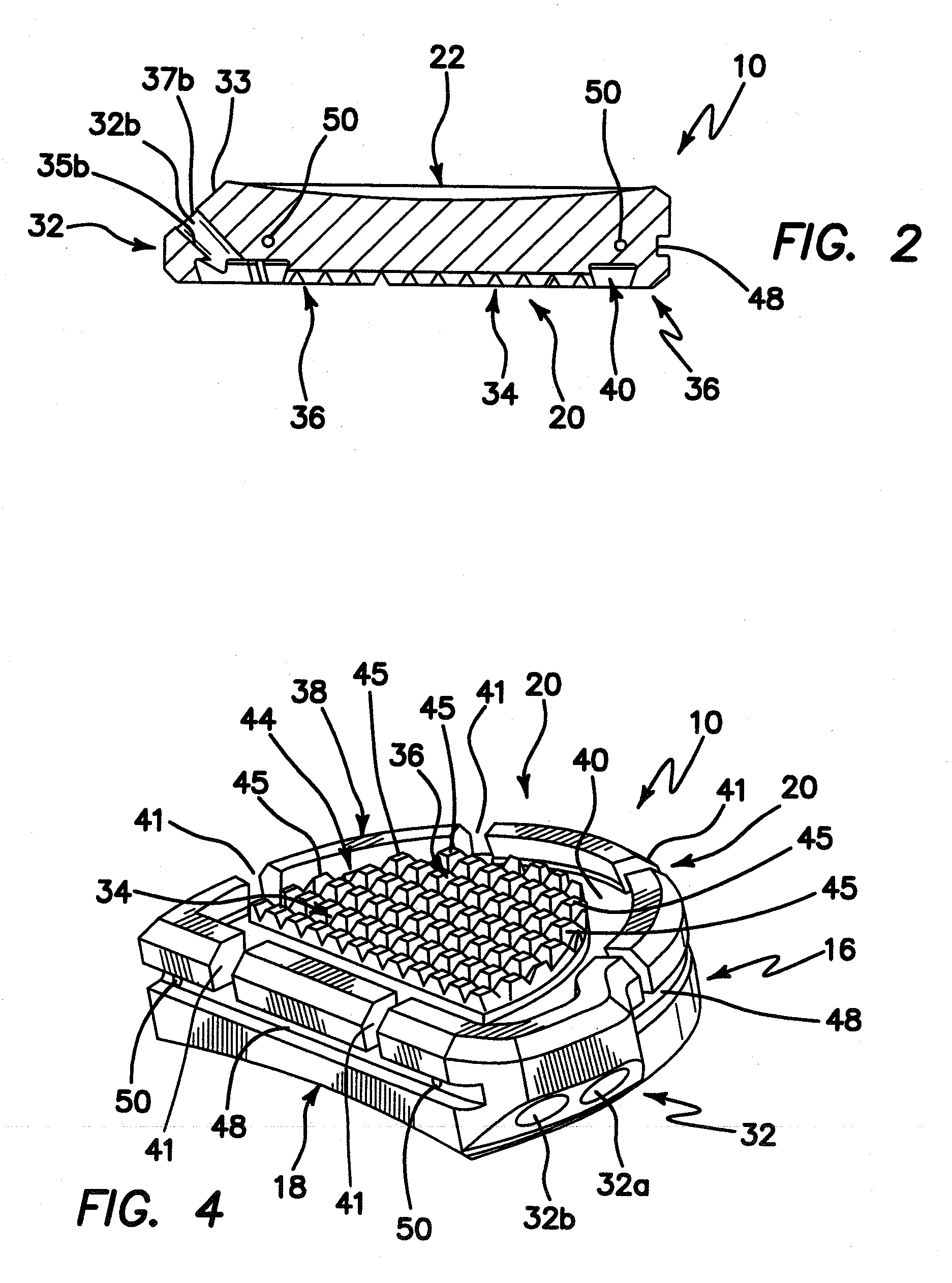Tibial Prosthesis
a technology for tibia and tibia, applied in the field of tibial prosthesis, can solve the problems of increasing the time required for recovery and rehabilitation, increasing the surgical trauma of patients, and failure of the prosthetic implant, so as to facilitate the containment of bone cement, facilitate the preservation of bone integrity, and reduce surgical trauma
- Summary
- Abstract
- Description
- Claims
- Application Information
AI Technical Summary
Benefits of technology
Problems solved by technology
Method used
Image
Examples
Embodiment Construction
[0036]Turning now to the drawings, an exemplary embodiment of a tibial prosthesis device in accordance with the invention is shown generally at 10. The device 10 includes a curved peripheral wall or sidewall 16 and a generally straight peripheral wall or sidewall 18, which together form, in cross-section, a generally semi-circular shape, or a generally D-shape, which approximates a resurfaced area of a bone, for example, a resurfaced area of a tibia bone, on or into which the device is to be implanted.
[0037]Resurfacing of the tibia bone in preparation for implantation of tibial prosthesis device 10 may be performed using conventional techniques, for example conventional, open surgical techniques. In one embodiment, such preparation may be performed using the arthroscopic surgical devices and methods described in the co-pending U.S. provisional patent application Ser. No. 61 / 067,741, filed Feb. 29, 2008, entitled INSTRUMENTS AND METHOD FOR ARTHROSCOPY OF THE KNEE and commonly owned h...
PUM
 Login to View More
Login to View More Abstract
Description
Claims
Application Information
 Login to View More
Login to View More - R&D
- Intellectual Property
- Life Sciences
- Materials
- Tech Scout
- Unparalleled Data Quality
- Higher Quality Content
- 60% Fewer Hallucinations
Browse by: Latest US Patents, China's latest patents, Technical Efficacy Thesaurus, Application Domain, Technology Topic, Popular Technical Reports.
© 2025 PatSnap. All rights reserved.Legal|Privacy policy|Modern Slavery Act Transparency Statement|Sitemap|About US| Contact US: help@patsnap.com



